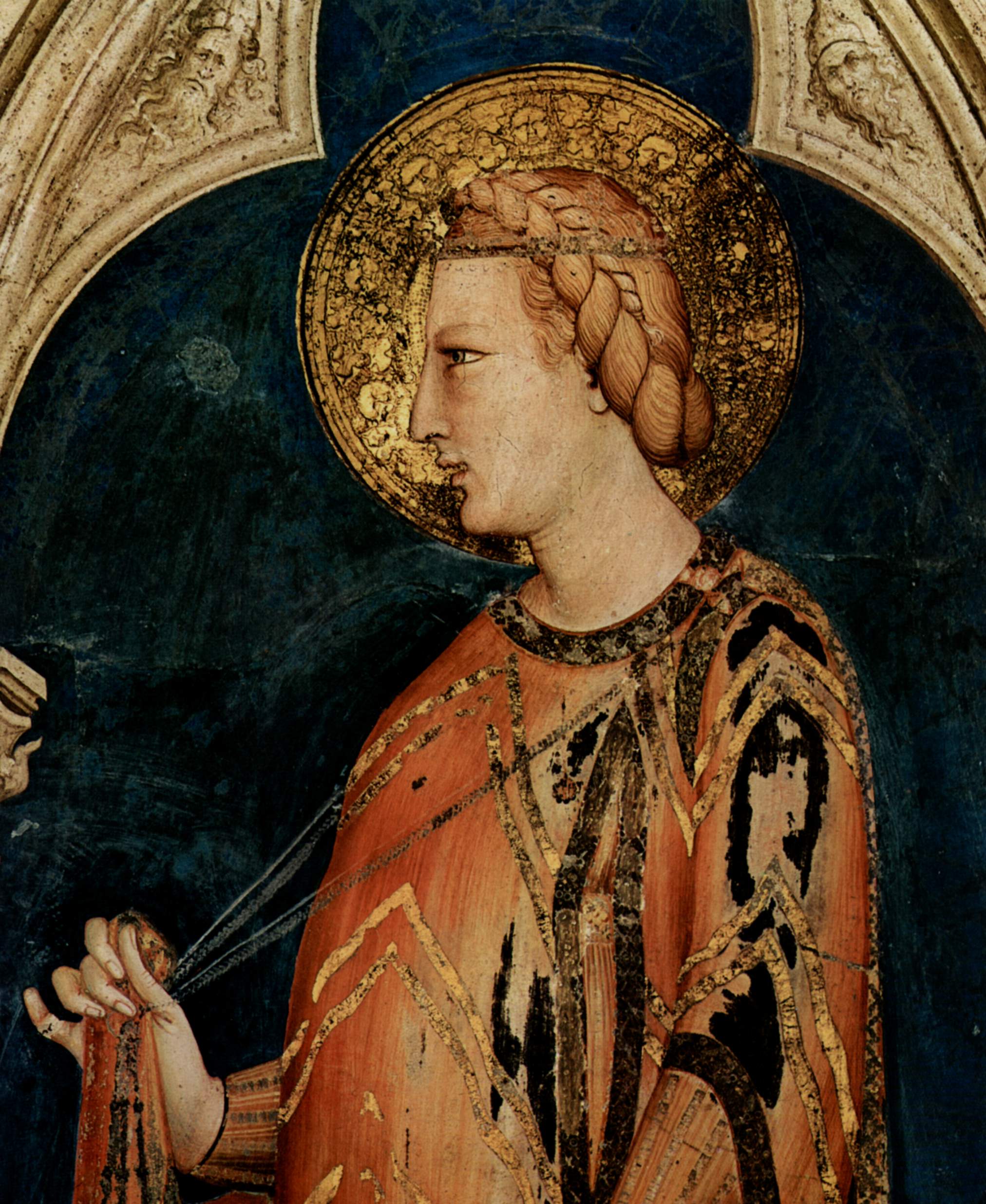
Elizabeth of Hungary
Elizabeth of Hungary (German: Heilige Elisabeth von Thüringen, Hungarian: Árpád-házi Szent Erzsébet, Slovak: Svätá Alžbeta Uhorská; 7 July 1207 – 17 November 1231), also known as Elisabeth of Thuringia, was a princess of the Kingdom of Hungary and the landgravine of Thuringia.
For other Hungarian princesses named Elizabeth, see Elizabeth of Hungary (disambiguation).
Elizabeth of Hungary
7 July 1207
Pozsony, Kingdom of Hungary (modern-day Bratislava, Slovakia)
17 November 1231 (aged 24)
Marburg, Landgraviate of Thuringia, Holy Roman Empire (modern-day Hesse, Germany)
27 May 1235[1][2][3], Perugia, Italy by Pope Gregory IX
17 November
19 November (General Roman Calendar of 1960)[4]
Roses, crown, food basket
hospitals; nurses; falsely accused people; bakers; brides; countesses; dying children; exiles; homeless people; lace-makers; widows; Bogotá, Colombia; Roman Catholic Archdiocese of Bogotá; Roman Catholic Archdiocese of Jaro; Teutonic Order; Third Order of Saint Francis; Budapest, Hungary and Košice, Slovakia[5]
Elizabeth was married at the age of 14, and widowed at 20. After her husband's death, she regained her dowry, using the money to build a hospital where she herself served the sick. She became a symbol of Christian charity after her death in 1231 at the age of 24 and was canonized on 25 May 1235. She is venerated as a saint by the Catholic Church. She was an early member of the Third Order of St. Francis, and is today honored as its patroness.
Saint Elizabeth is often depicted holding a basket of bread, or some other sort of food or beverage, characteristic of her devotion to the poor and hungry.[28] The "miracle of the roses" has also proved a popular theme for artists.
Peter Janssens composed a musical play ("Musikspiel") Elisabeth von Thüringen in 1984 on a libretto by Hermann Schulze-Berndt.
In Charlotte Brontë's novel Villette, the Protestant narrator includes the story of Elizabeth's involvement with von Marburg as one of several Catholic stories of confessors "who had wickedly abused their office, trampling to deep degradation high-born ladies, making of countesses and princesses the most tormented slaves under the sun."[29]
2007 octocentennial celebrations[edit]
The year 2007 was proclaimed Elizabeth Year in Marburg. All year, events commemorating Elizabeth's life and works were held, culminating in a town-wide festival to celebrate the 800th anniversary of her birth on 7 July 2007. Pilgrims came from all over the world for the occasion, which ended with a special service in the Elisabeth Church that evening.
A new musical based on Elizabeth's life, Elisabeth--die Legende einer Heiligen (Elizabeth--Legend of a Saint), starring Sabrina Weckerlin as Elizabeth, Armin Kahn as Ludwig, and Chris Murray as Konrad, premiered in Eisenach in 2007. It was performed in Eisenach and Marburg for two years, and closed in Eisenach in July 2009.[30][31]
The entire Third Order of St. Francis, both the friars and sisters of the Third Order Regular and the Secular Franciscan Order, joined in this celebration through a two-year-long program of study of her life. This was conducted throughout the Order, across the globe. There were also religious ceremonies held worldwide during that period. The yearlong observance of the centennial which began on her feast day in 2007 was closed at the General Chapter of the Order, held in Budapest in 2008. The New York region of the Order produced a movie of her life, produced by a sister of the Order, Lori Pieper.[32]
Honors[edit]
Saint Elizabeth of Hungary: On the 700-year anniversary of her death, Hungary issued a set of four stamps in her honor: on 21 April 1932;[33] on 1 August 1944 one postage stamp was issued;[34] on 16 July 1938 Czechoslovakia issued a stamp in her honor showing the Cathedral of St. Elizabeth in Košice.[35] She was declared the patron saint of the same city in 2019.[36]
The hymn "Wenn das Brot, das wir teilen", written for a pilgrimage to places in Thuringia connected to her life, refers to her Miracle of the roses, and mentions other works of charity.[37]



















